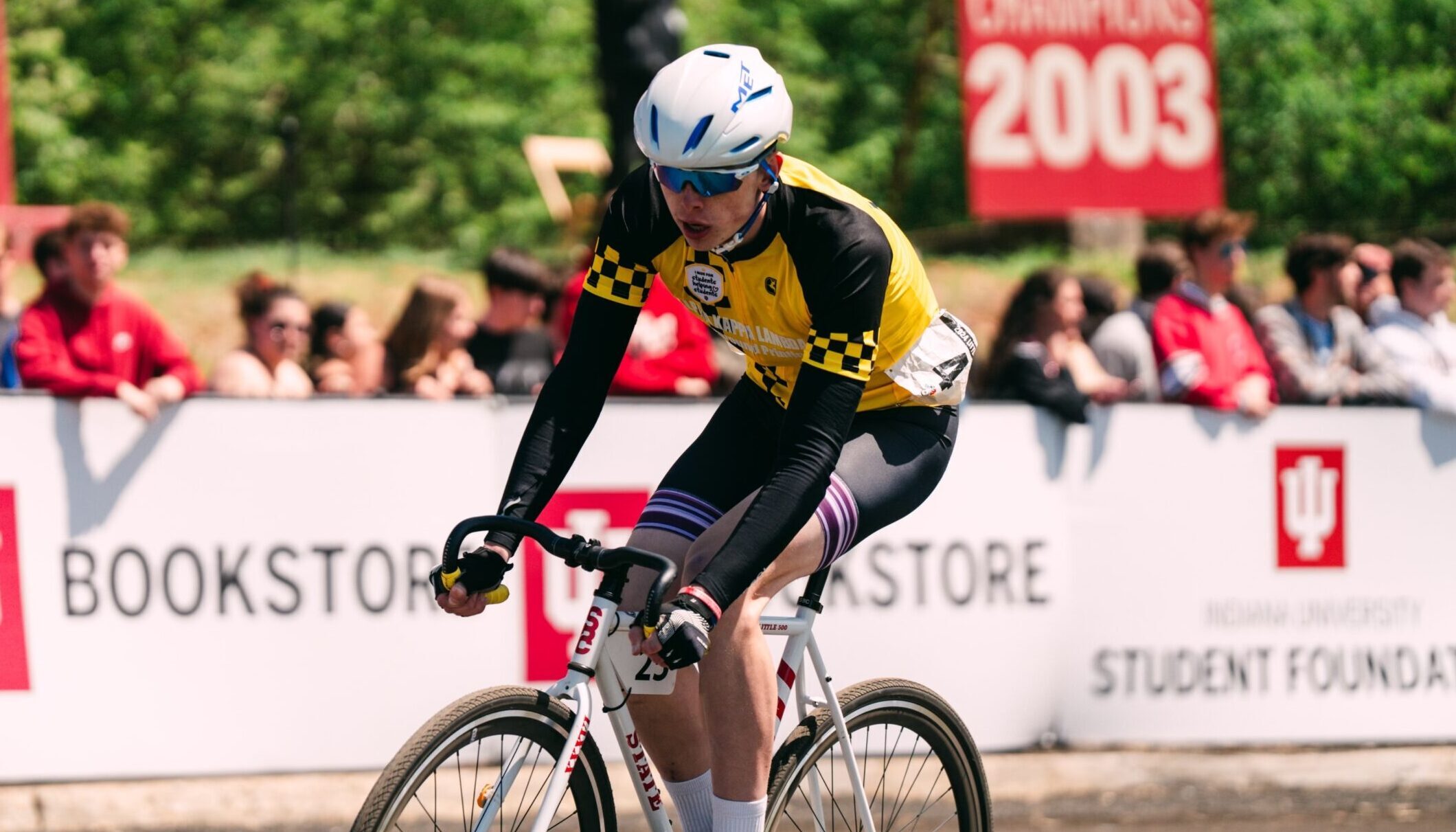BLOOMINGTON, Ind – It’s 4 a.m. on the Saturday of ‘The World’s Greatest College Weekend’ — Little 500. Many Indiana University students had just gone to sleep after a night of partying. Even the earliest of risers wouldn’t be up for hours.
But there in his apartment, Matt Bolotin was awake and ready to go.
He still had 10 hours before the race, but Matt has gotten used to waiting.
Seventeen months prior, his life was in peril. If not for a faulty heater in his apartment, he might not even be here.
***
RESISTANCE
In November of 2022 Matt was fully engulfed in his training for the Little 500 with his Alpha Kappa Lambda teammates.
He was six months from competing in the 72nd edition of the annual bike race that has become synonymous with Indiana University.
The flurries that fell from the sky were not going to stop him. He pedaled his blue road bike over 16 miles to Lake Lemon just like he had done so many times before.
While riding, Matt noticed something was different.
“I was having trouble breathing on the bike,” he said.
At first, he thought it was the cold weather. Being cautious, he called his mom after returning home.
“Hey, I feel like my asthma is coming back,” he told her. “I want to get back with my inhaler.”
After hanging up, he felt cold and elected to turn on the heat in his apartment.
“I sit back down and immediately the smoke alarms go off,” Matt said.
His roommates — Clay Lindner and Colin Dusek — rushed in to open the windows and shut the heat off. Amid the chaos, Clay saw something off with his roommate.
“I heard him slurring his words and I asked him, ‘Dude, you okay?’” Clay recalled.
He quickly grabbed a glass of water for Matt. What Clay noticed next may have saved his roommate’s life.
“He picked it up with his right hand and the water started to dribble out the left side of his mouth,” Clay said.
Clay, who works as a lifeguard in his spare time, recognized the signs of a potential stroke in his roommate but he wasn’t sure. Wanting to confirm his suspicions, he asked Matt to pick up the glass of water with his left hand.
“He could barely even move his arm up to grasp the water. That’s when I immediately thought it was a stroke,” Clay said.
While Clay was confident in his diagnosis, Matt could not conceive the possibility that he was having a stroke at the age of 19.
“We need to get to the hospital now,” his roommates urged.
“’I’m gonna go back to bed because I have migraines sometimes and it’s just a migraine,’” Matt told them.
They wouldn’t hear it. All but against his will, Clay and Colin dragged Matt to the hospital.
Still unaware of the severity of the situation, Matt tried joking around on the way there. With Texas Football in the middle of a big game against his sister’s school, TCU, Matt remembers flashing the anti-Texas horns down in the car.
“If you never had a stroke, it kind of feels like you’re drunk, but you’re also half paralyzed,” Matt said.
After arriving at IU Health Bloomington Hospital, he underwent a series of tests and scans before it was determined he needed surgery in Indianapolis. Due to the weather, they were unable to take a helicopter and were forced to drive.
Matt was moved into an ambulance and the medical team put an oxygen mask over his face.
That’s the last thing he remembers from that day.
***
THE CLIMB
A day later Matt woke up in the Intensive Care Unit.
His first question: who won the Texas-TCU game?
He later asked to get an Oreo McFlurry. After doctors made sure he was strong enough to swallow, he got the ice cream he craved.
They kept him in the ICU for 11 long days. He spent most of them sleeping.
Matt returned to his home in Chicago after his stay in the hospital.
That first night the fears and anxiety of another stroke lingered in his head.
“What if it happened again?” he said. “That fear kind of carried on for a little while.”
Finally, back home, he began his rehab at the Shirley Ryan AbilityLab.
There he encountered many people who had also suffered traumatic brain injuries.
Since Matt’s stroke was caught early enough he hadn’t lost the ability to walk. That wasn’t the case for others he encountered. Some were confined to wheelchairs. Others needed helmets for their safety.
While they struggled to do everyday tasks, Matt rehabbed on a treadmill. He felt like he didn’t belong there with them.
“It was basically kindergarten. My ego took a little bit of a hit there,” he said.
To rebuild his dexterity, he would practice simple tasks like picking up pennies off of a table. He also played bingo and other games that involved picking up small pieces.
“There was one older lady who we played Yahtzee with and she would chirp me the entire time,” he joked.
Having never played Yahtzee before, he would repeatedly botch the rules of the game and she made sure to let him know.
Through it all, one thing kept him going. The seemingly impossible goal of returning for the spring semester less than two months after the stroke was all he could think about.
“I did not want to be there,” he said. “I wanted to be back in school.”
***
THE COMEBACK
“Perseverance.”
That is the one word Clay used to describe his roommate Matt.
Less than three months after suffering the stroke, Matt returned to Indiana University for the start of the spring semester to finish his sophomore year.
Despite pleas from his parents, he was not going to let this put him behind.
“They were terrified,” he said. “They did not want me to go back at all, but I was dead set on it.”
The long days on the treadmill during rehab. The dexterity training. All those games of bingo. He wanted to be himself again. He wanted to be a college kid again.
He was aware that would not be easy, but he was going to make it happen.
“It was really hard at first because you don’t really realize how much your brain has taken a hit until you try to grasp complex concepts,” Matt said.
While his ability to walk, move, and maneuver were all significantly affected by the stroke, it was the effect on his brain that made his return to class so difficult.
Taking hard classes like statistics and other business-related courses made it even harder.
The challenge of coming back so soon caught up to him. The self-doubt set in.
“I called my mom a month in and was like, ‘I came back too early,’” he said.
Even with the self-doubt growing, he was not going to give up. If there is one thing that Matt is not, it is a quitter. No matter what, he was not going to let himself stop.
Even though he was only months removed from the stroke, he continued training for the Little 500. He still wanted to compete in the 2023 race.
“That just shows his level of intensity and just his willingness to push through difficult situations,” his teammate Luke Breier said.
Still, Matt had lost a step. He kept training, but reality soon clicked: he was not going to be ready in time to race in the Little 500.
“Having to send that message that I was gonna take some time off was a really tough thing for me,” he said. “I just didn’t want to feel that feeling again.”
He may have stepped away from the team, but he was not going to stop.
Matt kept working. He began a strict regimen and refrained from the usual college vices of drinking and partying.
Matt would watch from the sidelines as his teammates competed in the 2023 Little 500. Not being out there stuck with him and motivated him to not let it happen again.
“After that last 2023 race I fully committed my life to making it back,” he said.
Every decision he has made, everything he has done since has been with the date April 20, 2024 in mind.
Competing in the 2024 Little 500 has driven him.
“After the race last year, I was in a dark place,” he said. “I felt like I could’ve raced if I didn’t give up because of the pain. But there’s still a little bit of shame there.”
That shame motivated him.
Every morning he is up at 5 a.m. to lift. Six days a week he is biking at least 30 miles.
His training regimen is not for the faint of heart, but he was not going to let himself miss the 2024 race.
“My mind won’t rest until I cross that checkpoint,” he says.
Little 500 is his current goal. But as a lifelong athlete, he has other athletic goals for himself and the future.
He accomplished one goal this summer when he competed in a triathlon.
After college, he wants to compete in an Ironman Triathlon. That includes a 2.4-mile swim, a 112-mile bike ride, and running 26.22 miles.
For many that sounds impossible. For someone who suffered a stroke, it seems out of the question. For Matt, it’s just another mountain to climb.
The word his teammate Luke Breier used to describe him was “tenacious.”
“He just never gives up no matter what,” Breier said.
Matt has faced some of the most difficult challenges anyone can face, much less a college student.
The sheer will and determination he has have pushed him to do things many see as impossible. His mentality has rubbed off on his Little 500 teammates, too.
“Just being his teammate and seeing him do that. I mean, that’s another level of motivation that you just don’t get anywhere else,” Breier said.
***
RACE DAY
The 11 days in the ICU. The time he spent rehabbing. Sending that painful text to his teammates saying he wouldn’t be racing in the 2023 Little 500. Everything Matt had been through had led to this day.
Despite the long wait before the race, the realization of what the day represented hadn’t set in for Matt.
“It was just go-go-go,” he said.
Having to bring the necessary equipment and tools to the track, plus a morning warm-up ride, kept him busy.
“I had so much support earlier that day, I never was zoning out or anything like that, I was just locked in,” he said.
Matt remained focused on the one thing that he had been working so hard to achieve.
It wasn’t until he arrived at Bill Armstrong Stadium that the pre-race anxiety started to set in.
Was the seat height on the bike right?
Were the trainers on the bikes ready?
All these questions and more raced through Matt’s head in the final moments before the race.
Then the National Anthem began.
“That was the most peaceful moment of my life,” he said.
All the nerves and anxiety had cleared his head. He was ready to go.
Matt followed the red pickup truck that paced him and the other riders as ‘Indiana Our Indiana’ serenaded the stadium.
“I definitely had goosebumps during that,” he said.
It was one of the final moments in which he was able to take it all in before the intensity of the race began.
After the completion of the third pace lap, the race was on.
“The race itself is so intense and there’s so many variables that I was not thinking much [during the race],” he said.
He and his Alpha Kappa Lambda teammates kept pace with the pack and wound up finishing in 25th place.
But Matt didn’t know that.
When they crossed the finish line and completed the grueling race, he didn’t care where they finished. He had completed the daunting goal that he had been working so hard for.
With tears in his eyes, he embraced his family and celebrated the moment.
“I was just thankful,” he said. “I didn’t even look [at where they finished] until the next day.”
It didn’t matter where he finished. What mattered was: he finished.
Make sure to follow Hoosier Illustrated, part of the Full Ride Network, on Twitter @Indiana_FRN, Facebook and YouTube to stay up to date on all of the news, updates and coverage of Indiana University athletics. You can also listen to the Talking’ Bout the Hoosiers podcast on Spotify.
Looking for a place to get more Indiana content? Hoosier Illustrated has partnered with Tom Brady’s company ‘Autograph’ to streamline our coverage, so you can continue to do what you do best – follow IU sports. Use the CODE: Indianafr to get started today. For more info, you can start here.
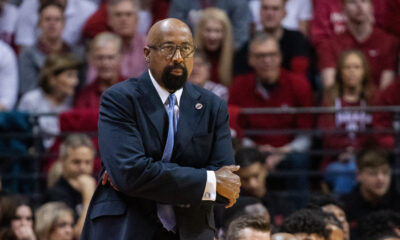
 BASKETBALL3 days ago
BASKETBALL3 days ago
 PRO HOOSIERS5 days ago
PRO HOOSIERS5 days ago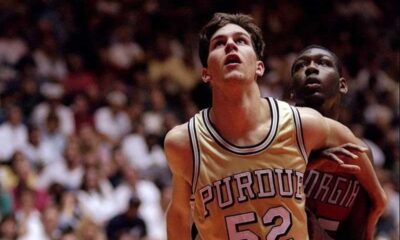
 BASKETBALL2 days ago
BASKETBALL2 days ago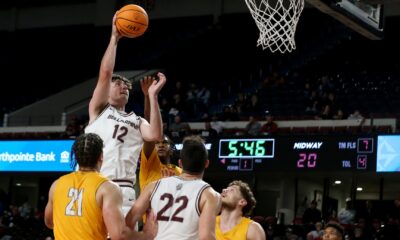
 BB RECRUITING4 days ago
BB RECRUITING4 days ago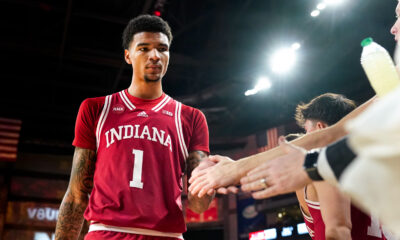
 PRO HOOSIERS5 days ago
PRO HOOSIERS5 days ago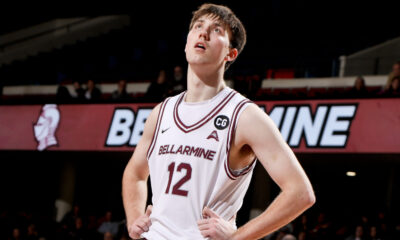
 BB RECRUITING4 days ago
BB RECRUITING4 days ago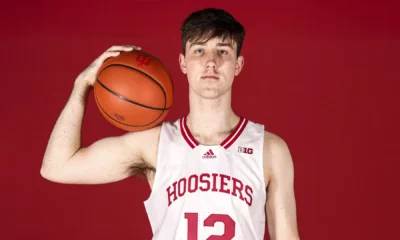
 BASKETBALL3 days ago
BASKETBALL3 days ago
 BB RECRUITING5 days ago
BB RECRUITING5 days ago
